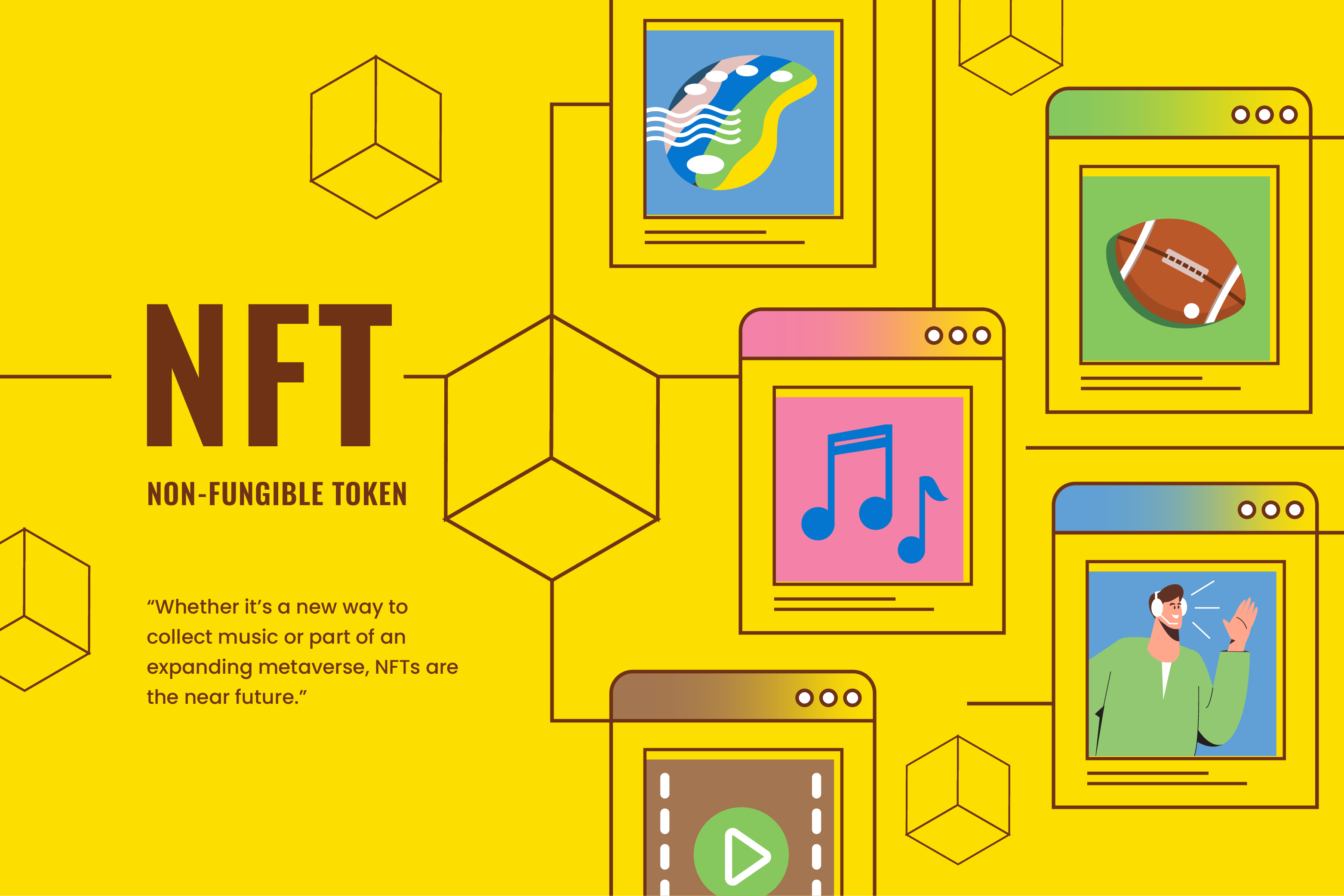Whether it’s a new way to collect music or part of an expanding metaverse, NFTs are the near future.
NFTs are the digital era equivalents of those vinyl records or CDs that our moms and dads collected and treasured. At least, that’s the hope for some industry insiders who believe “non-fungible tokens” are going to save music.
In an era of digital piracy and streaming, music has to a large extent become cheap or free and always available online. While this is good news for consumers, it’s not always great for the people who make music.
Platforms such as Spotify and Apple Music control the international market, while Taiwan’s KKBOX is Asia’s largest music network and has enormous reach in the Chinese-speaking world. However, the trickledown economics of the system have not really worked out for most artists.
This is where NFTs become an industry game changer, according to Terence Leong, who co-founded KKFARM, a direct investment firm that is part of KKBOX, itself a subsidiary of Japan’s KDDI Corporation. Based in Taipei, he’s a smart, tech savvy visionary and has been looking for the next big hit since he was a young A&R man.

Terence Leong.
Leong was at EMI in the early Noughties when he told his boss MP3s were the future. “I had a wild idea where I was like, we should allow people to log into the EMI website and just stream the Beatles, Coldplay and then just pay two to three bucks a month.” He thought this might solve the problem of piracy after digital music files had opened Pandora’s box, but EMI didn’t get it.
Someone who did get it was KKBOX founder Chris Lin, who allegedly built the world’s first legal music streaming platform in 2004. When Leong joined the company just over a decade later the problem wasn’t so much piracy as the price of music had fallen through the floor.
Steve Jobs brought down the price of an MP3 to 99 cents and streaming brought down costs to “zero-point something cents,” Leong says. More recently, China’s Tencent Music has muscled in by offering music for free and leveraging its 800 million or so users to buy virtual products instead.
This is a threat to the freemium model of music for all but more music and better service to paying customers. It also presents a challenge to those like Leong who are trying to reestablish ownership of digital music, make it pay, and make it collectible again. “Our concept sounds like an oxymoron, but how do you create digital vinyl?”
The answer is blockchain technology and NFTs, which are unique or non-fungible tokens; whereas Bitcoin is fungible and mutually interchangeable like dollar bills. An NFT is a digital certificate of ownership for any kind of file.
Once an NFT is minted the ownership information cannot be faked because it’s on a blockchain, which records all its digital transactions on a distributed ledger across the entire computer network. It’s an original creation, like a painting, even if copies of the work can be produced and sold.
Just like the good old days, blockchain makes media rare and valuable again, Leong says. Getting down to the nitty gritty, he introduces his company’s OURSONG app, a “playground” for NFTs that “lets you create, share and trade creative moments” in the form of digital trading cards called Vibes.
Using the example of a local indie bands with 1,000 fans, Leong says they don’t earn much from music streaming, recordings, or photos of recording sessions on Instagram. “They can just grow fans, which is what people call social currency” – and then hope to sell tickets to concerts.
“However, if they create an NFT they're essentially selling an access token,” Leong says. This could be a traditional single or album, or bundled extras like gig tickets and bonus tracks. These NFTs can be gifted or traded through an auction process via OURSONG. The artist gets 87.5%, the company takes 12.5%. Money is withdrawn and added through PayPal, Ethereum or Ourcoin.
There is also a secondary market, meaning that if the owner of the song sells it on the artist gets 7.5%. This kind of transaction is unique to blockchain. It used to be if a record was sold on, either at a second-hand store or eBay, the artist wouldn’t see a cent.
Since this is early days for NFTs the possibilities are endless, Leong says. “Imagine if your vinyl could update itself. You wake up one morning, there's 15 tracks. The next day, there's 16 tracks, there's a message from Chris Martin, right? It's an interactive vinyl now. It's the tree that keeps on giving.”
All this can be done on a phone, Leong says. “Our vision is everybody, not just tech elites, should have access to this transformational technology that creates wealth,” possibly democratizes the internet and helps decentralize finance.
This vision of the future is mirrored by Tai-Ku Chen, co-founder and CEO of Fansi, a Taipei-based music NFT issuing and marketplace platform. It sells music and collectibles in the form of “Nifties,” or “drops.” Again, the model is for artists to get most of the original sale and a slice of secondary trades.

Tai-Ku Chen.
A multiple tech startup innovator and venture capitalist, Chen was looking down the crypto currency “rabbit hole” in early 2018 when he thought, “Oh, wow, this is actually not just a new tech, it's actually a revolutionary society or mindset, a new way to do business.”
“Blockchain has allowed us to take digital goods off the internet and make them exist in the physical world,” and Chen believes this is going to have unforeseen effects. “We live on our phones, we check them every two seconds, so in a way we already live in the internet,” which is expanding and transforming into web 3.0, where blockchain could enable individuals to be properly compensated for their content and activities.
Chen says people are tired of the giant platforms like YouTube that kidnap content from creators and do not recompense fans, whose sharing and interactions help create the platform in the first place.
In the same way that gamers win virtual prizes and trade, he thinks this type of behavior is going to bleed into reality, creating the metaverse. This is an undifferentiated virtual environment housed on the blockchain, which Neal Stephenson talks about in his novel “Snow Crash.” It is science fiction, but with augmented reality, virtual shopping, in-game rewards as social tools, and so on, we’re not far away.
Chen says music is a big first step. “Everybody speaks music,” he says and the good thing about blockchain is the infrastructure is universal or language agnostic. With NFT music you can “pretty much sell it to anyone in the world.”
“(Fans) love to discover new bands, indie bands or new artists, and they want to invest in them at a super early stage. And when they become popular they can benefit because of NFTs and because of the token economy,” Chen says.
“If you ask me, I would say indie bands should issue their music as NFTs because that's something they can try out in the market first, to see who likes their music. Also, who knows, you may start to generate some revenue.”
While both Terence Leong and Chen recognize NFTs as a financial instrument, they also believe that NFTs are the future of music, whether this is as a form of back to the future collecting digital vinyl, or as a vital part of an expanding metaverse. Either way, musicians need to take note.
In addition to this article, the author has produced some NFTs that provide an example of the new creative format in action, with multimedia samples of the process, including video, audio of the interview and a full transcript. Here are the links:
https://www.oursong.com/project/jlrabeqw/song-share-card
https://www.oursong.com/song-share-card/bgnyymjx


